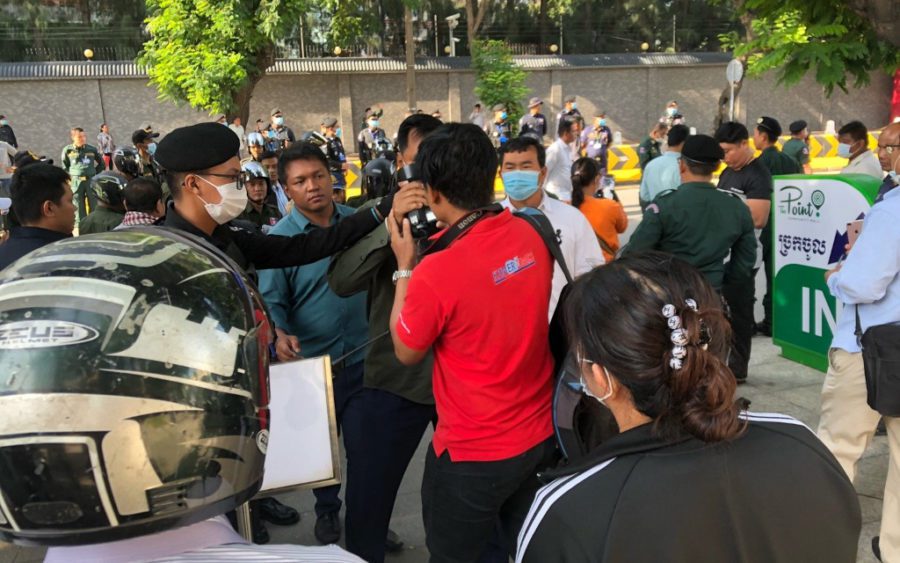A Phnom Penh police order instructing officers to prevent journalists from filming and interfering with police work comes as fewer reporters have attended protests, court trials and other politically sensitive events.
Phnom Penh Municipal Police chief Sar Thet announced his latest instructions for his officers last week, posting online that journalists must be banned from filming, photographing or recording police investigations and surveillance work; the apprehending of criminals; and officers fulfilling “other duties.”
“For those who violate and flout the instructions of authorities, the authorities will take legal action against them,” he said.
Municipal police spokesperson San Sokseyha said on Tuesday that the directive was about avoiding cases where publicity might interfere with investigations and allow criminals to escape, as well as preventing journalists from “going too far into authorities’ space.”
“Recently there seem to be a lot of mistakes,” Sokseyha said. “Sometimes when they film live without approval, some suspects find it easy to escape.”
In recent months, journalists have been harassed while covering protests, including at the Chinese Embassy in October, when city officials demanded that journalists hand over cameras; and outside the Phnom Penh Municipal Court this month, when reporters outside the courthouse were limited to staying inside the Olympic Stadium grounds. Sensitive events have seen less on-the-ground news coverage, with a trial hearing against the opposition CNRP last week attended by only VOD and CamboJA.
“For professional journalists who follow the Information Ministry and are properly licensed, there is nothing to worry about,” Sokseyha said. “If they are good people, they should not fear authorities, unless they are bad or cause trouble.”
Soeng Senkaruna, spokesperson for human rights group Adhoc, said authorities were increasingly obstructing journalists.
“There are only a few journalists who come to cover the news” now, he said, explaining that problems were frequent around protests and court hearings. “It is completely different from before, when the journalist could do their own work and go report anywhere. Recently they want to draw boundaries.”
Rights monitors have also faced greater restrictions, he added. “We have seen lately that it is not only civil society but also U.N. officials have been pushed away by authorities,” Senkaruna said.
Information Ministry spokesperson Phos Sovann said reporters should not interfere with police work, and they can film from farther away.
He added that if a protest has not been granted prior permission, other people cannot be part of it either.
“In the case of protests without approval from authorities, authorities clearly must crack down on them, so we must be careful,” Sovann said. “The one who is part of it will also be considered as opposing the law.”
Regarding the reporting of protests, especially outside courts, Sovann said only that “they must follow the authorities’ instructions.”













